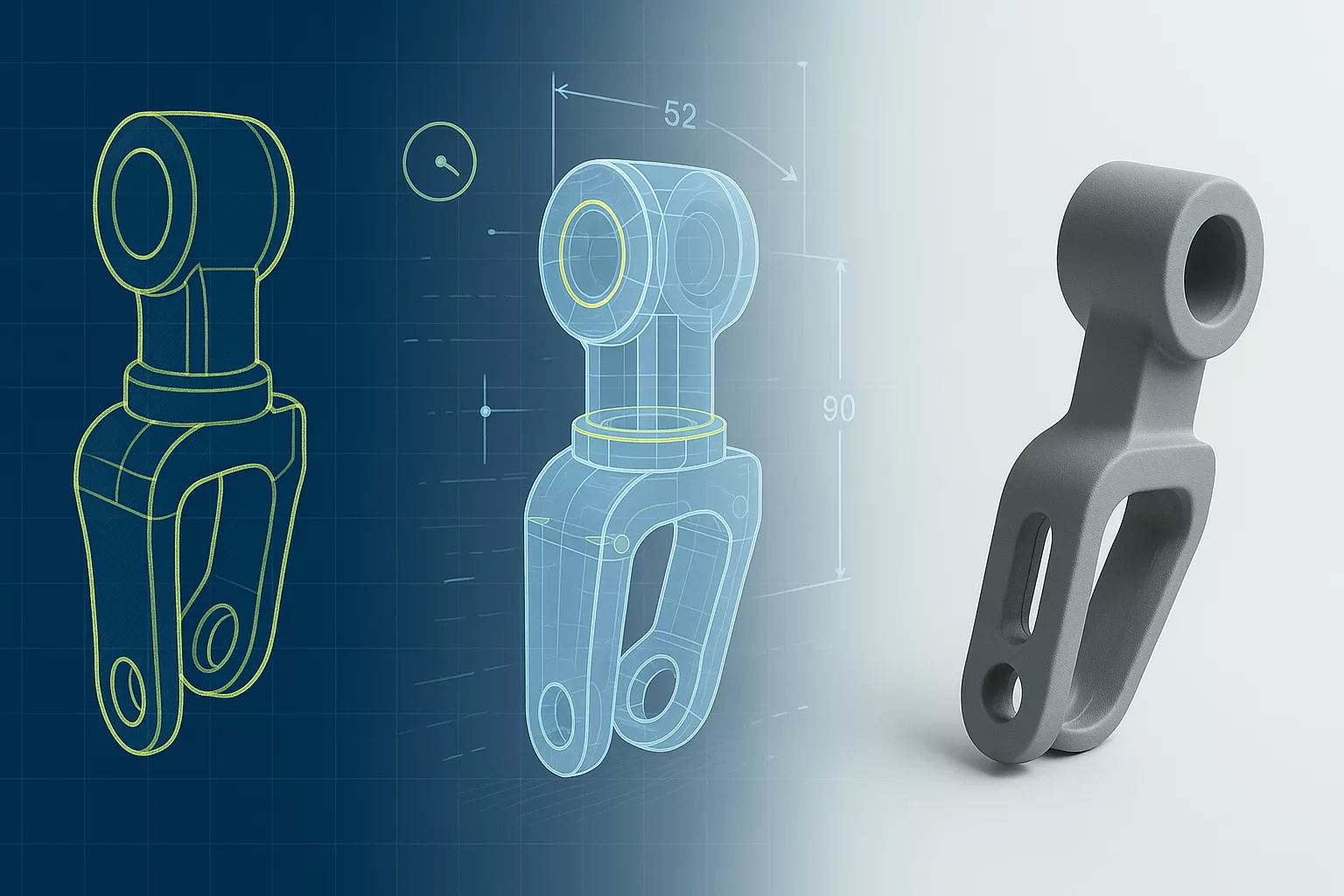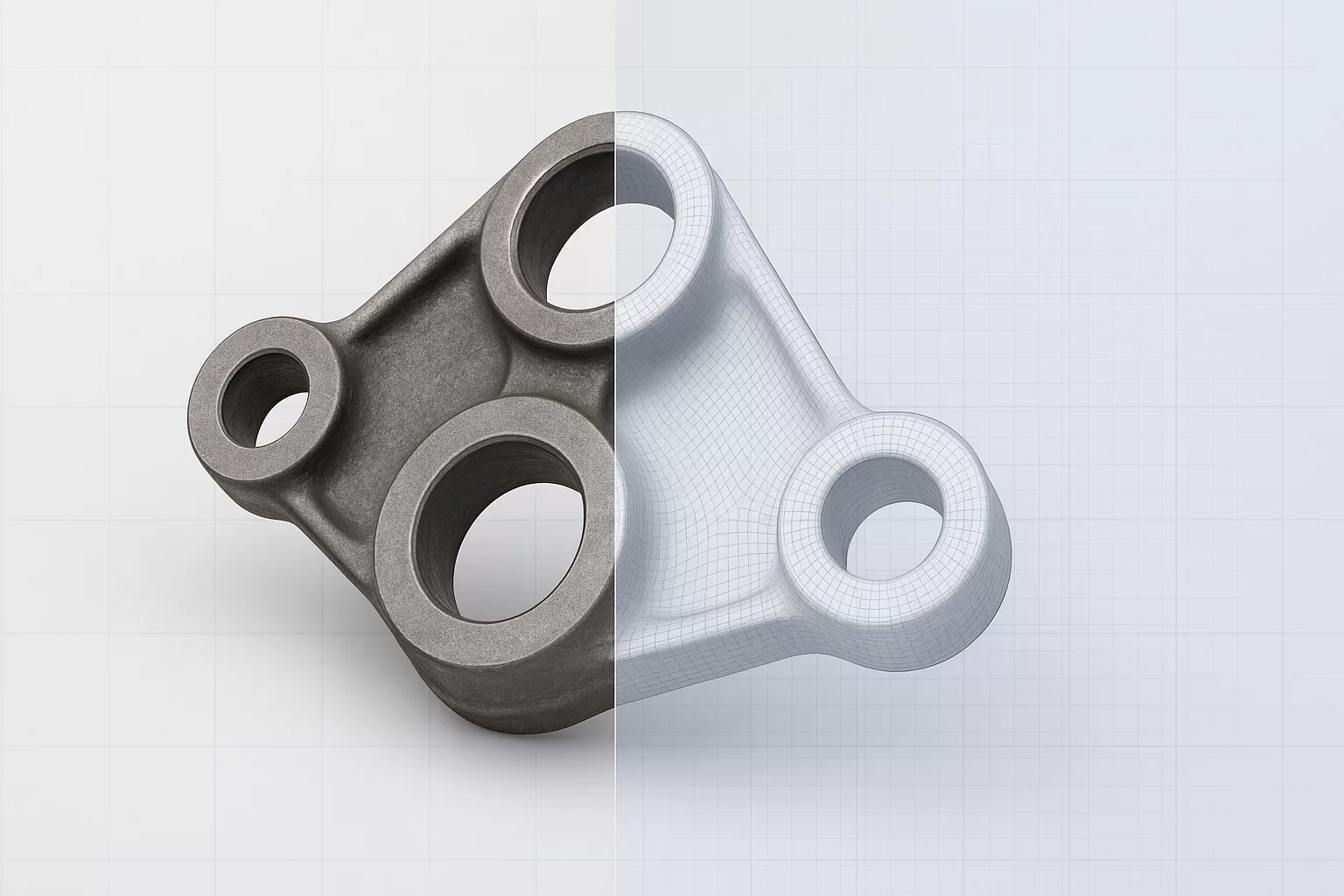
End-to-end 3D CAD modeling
Mechanical and organic shape optimization
Support for complex geometries and overhangs
Reverse engineering from physical samples
Material and structural input based on application
From Concept to CAD: Your Design Starts Here
Every great product starts with a clear idea—and we help shape it into a manufacturable model. Upsurge transforms sketches, rough models, or existing designs into detailed, production-ready 3D CAD files.
We approach design as a collaborative process, helping you explore functionality, geometry, and structural integrity right from the start. Whether you’re a startup testing a prototype or an engineer refining a complex part, we bring clarity, speed, and precision to your design workflow.
Optimized for Performance and Printability
Designing for 3D printing isn’t just about geometry—it’s about how a part performs during and after manufacturing. We apply Design for Additive Manufacturing (DfAM) best practices to ensure your parts are not only printable but also structurally sound, efficient, and cost-effective.
Our team understands how design decisions affect print success and part behavior under load. From internal supports to material constraints, we tailor every model to meet the needs of HP MJF technology and your intended use.
Design Guidelines for MJF
Minimum wall thickness: 0.7–1.0 mm
Standard tolerance: ±0.3 mm or ±0.3%
Maximum build size: 380 x 284 x 380 mm
Drain holes for internal voids: 4 mm+
CAD Model Checks
Watertight geometry
Orientation-aware modeling
Surface optimization
Snap fits and mechanical joints
Ready to Bring Your Product to Life?
Submit your project details or request a consultation. We’ll review your goals, help scope your design, and get you a print-ready solution—fast.
High-Precision 3D Scanning Services
Capture real-world parts with micron-level accuracy. Upsurge offers professional 3D scanning services to help you digitize, inspect, or reverse-engineer existing components—fast and reliably.

Accurate scans for design, replication, or quality control
Ideal for legacy parts, prototyping, and reverse engineering
Compatible with CAD modeling and additive manufacturing
Fast turnaround and seamless file delivery
What We Scan
Mechanical parts
Prototypes
Enclosures and housings
Custom fixtures or tools
Organic shapes for design adaptation
Output Options
High-resolution mesh (.STL or .OBJ)
Parametric solid models (.STEP or .IGES)
Surface reconstructions for CAD workflows
Need to scan a part?
[Request a Quote]
Design Guidelines for MJF 3D Printing
To get the best results from your project, we recommend following a few key design principles when preparing parts for 3D printing. Multi Jet Fusion offers greater design freedom than traditional methods, allowing for more intricate structures, but it also requires a shift in how parts are designed. By considering early whether your product is intended as a prototype, a final part, or for mass production in another technology such as injection molding, you can save time, reduce costs, and ensure a successful outcome.
Reach out to us at design@upsurge3d.com and we’ll help you determine the best approach for your project. You can also download our Design Guidelines to get practical tips on making the most of our technology.